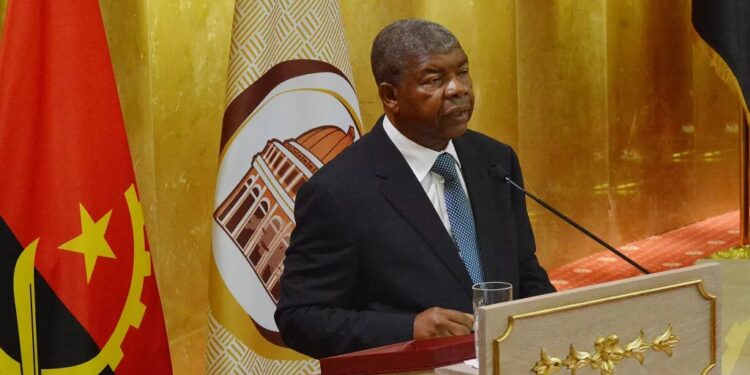The President of Angola, João Lourenço, began the Parliamentary year on Monday, October 16, with a key message regarding the nation’s current state. This came on the heels of an extraordinary Parliamentary session that was convened to deliberate on an impeachment proposal from the main opposition group against him.
In a firm rebuttal, the President refused a verbal petition from the President of the UNITA opposition party to address the session. Lourenço stated: “Any citizen who desired to deliver a speech on the nation’s state would wrongly wield the powers vested solely in the Head of State by the Constitution.”
President Lourenço’s delivery was predominantly centered around economic issues and the status of Angola’s public finances. He additionally undertook an evaluation of the achievements made under his administration.
In the aftermath of his speech, there was a mixed reaction; applause from lawmakers of the ruling MPLA party and shouts from opposition members. Joanna Tómas, an MP from the ruling MPLA, provided an appraisal of the President’s speech by saying, “It was a discourse that embodied the nation’s state as we stand, with the President’s presentation traversing all sectors, accentuating the ongoing investments, those envisaged to be up and running by 2024 and those currently in the pipeline.”
João Lourenço pledged to continually withdraw fuel subsidies and additionally acknowledged the potential reduction of VAT on several products. However, these measures didn’t make the cut for the opposition.
Reflecting on the state of the nation, an opposition member indicated their displeasure by stating, “It’s a record regarded as negative. Following last year’s elections, it would have been pleasing to witness a politically, economically, and socially different nation.”
Despite this, President Lourenço advised on a likely “slowdown in economic activity,” which he believes will be offset by projected expansion in the non-oil sector.
The National Assembly of Angola consists of 220 deputies, of which the ruling MPLA party holds an absolute majority. Such dominance potentially furnishes the President with a bulwark against the challenges posed by the opposition.
The President’s uncompromising start to the parliamentary year reflects a commitment to his economic policy and administration, even in the face of significant political opposition. Nevertheless, as the opposition’s dissatisfaction grows more profound, President Lourenço may need to identify measures that would satisfy both his administration’s economic objectives and the nation’s broader, more diverse interests.
The political trajectory of Angola in the coming months will be of significant interest to both regional and international spectators. Whether President Lourenço succeeds in sustaining his policy commitments amidst escalating opposition and possible economic downturns remains for future sessions of the National Assembly to reveal.
This new session of parliament has started with an intense political climate, and all eyes will be on Angola’s leadership as they navigate these tricky waters. The unfolding political and economic scenarios will undoubtedly influence Angola’s direction and potentially determine the legacy of President João Lourenço’s administration.





